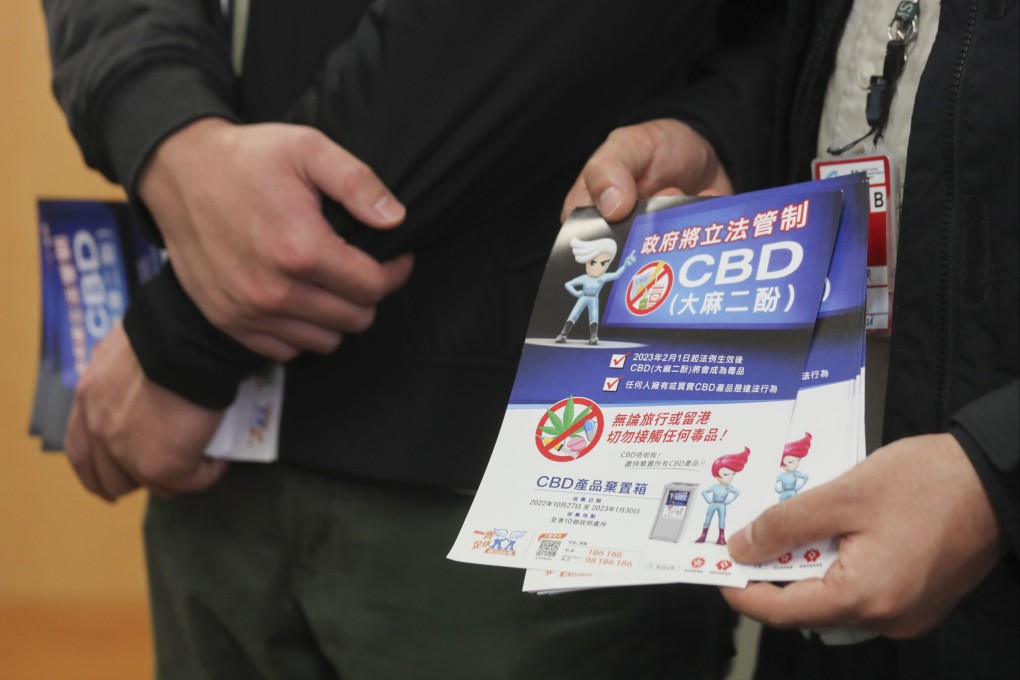Hong Kong’s ban on products containing CBD comes into effect next week, customs warns
- Residents have been warned against buying products containing CBD from outside the city
- CBD will be listed in the Dangerous Drugs Ordinance from February 1

Hong Kong’s ban on products that contain a substance derived from cannabis will take effect next Wednesday with no grace period, customs has warned, as it revealed plans to step up enforcement to crack down on drug trafficking.
The Customs and Excise Department called on Hongkongers to be aware of the presence of cannabidiol, or CBD, in products bought inside and outside the city and urged the public “not to risk breaking the law”.
“Just don’t buy it if you feel uncertain to avoid ‘falling foul of the law’,” Brian Chan Kai-ho, commander of customs’ air passenger division, said on Friday.
CBD is derived from cannabis plants. From February 1, the chemical will be listed in the Dangerous Drugs Ordinance, joining more than 200 substances including cocaine, cannabis, crystal meth and heroin.

In Hong Kong possession of dangerous drugs is punishable by imprisonment for up to seven years and a HK$1 million (US$127,713) fine. Trafficking, including import and export, on the other hand, is punishable by up to life imprisonment and a HK$5 million fine.
CBD is touted as an aid to relaxation and a natural remedy for anxiety, insomnia and muscle pain. Products infused with CBD, such as oils, coffee, beer and beauty items, have gained popularity in Hong Kong.
